What Does Chalk Do In Pool? Everything To Know About Pool Chalk
Key Takeaways
- Pool chalk is a small cube of powdery substance made from materials like silica, aluminum oxide, and corundum, giving it the gritty texture needed for effective grip.
- What does chalk do in pool? Chalk prevents miscues by creating friction between the cue tip and cue ball, allowing clean contact, control, and spin.
- Chalking before every shot is the safest habit, especially when precision or spin is needed, since it keeps the tip ready and prevents slips.
- Proper chalking means applying it lightly and evenly while rotating the cue, ensuring full coverage without damaging the tip.
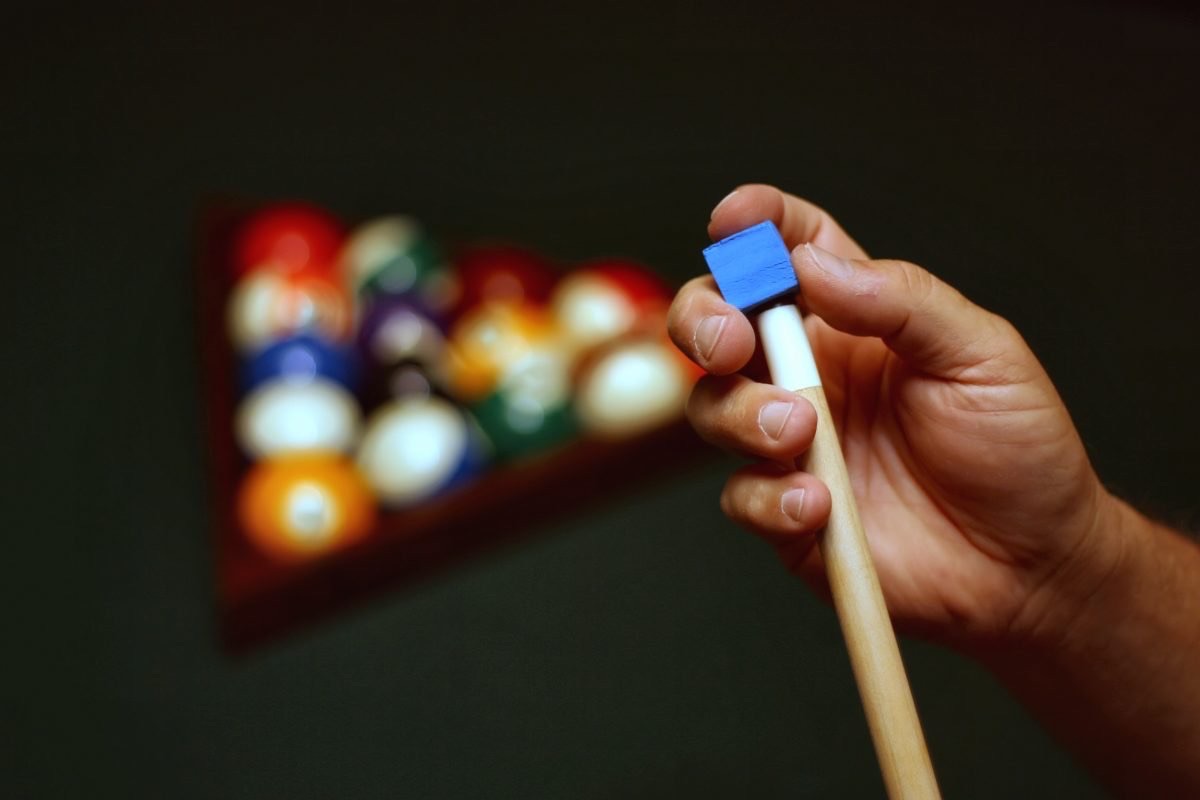
What does chalk do in pool?
Chalk may seem like a small detail, but as you’ve seen, it makes a big difference in every shot. And just like chalk, the quality of your cue determines how much control and confidence you have at the table.
Pearson® Cues are designed with precision craftsmanship and performance in mind, so when paired with the right chalking routine, you’ll always be ready for your best game.
Explore the full collection of Pearson® Cues and find the cue that matches your style and skill. https://pearsoncues.com/
What Is A Chalk?
Chalk in pool is a small cube of powdery substance, usually made from silica, abrasives, and dye, that players apply to the tip of the cue. These materials give the chalk its gritty texture, which is what allows the cue tip to grip the cue ball.
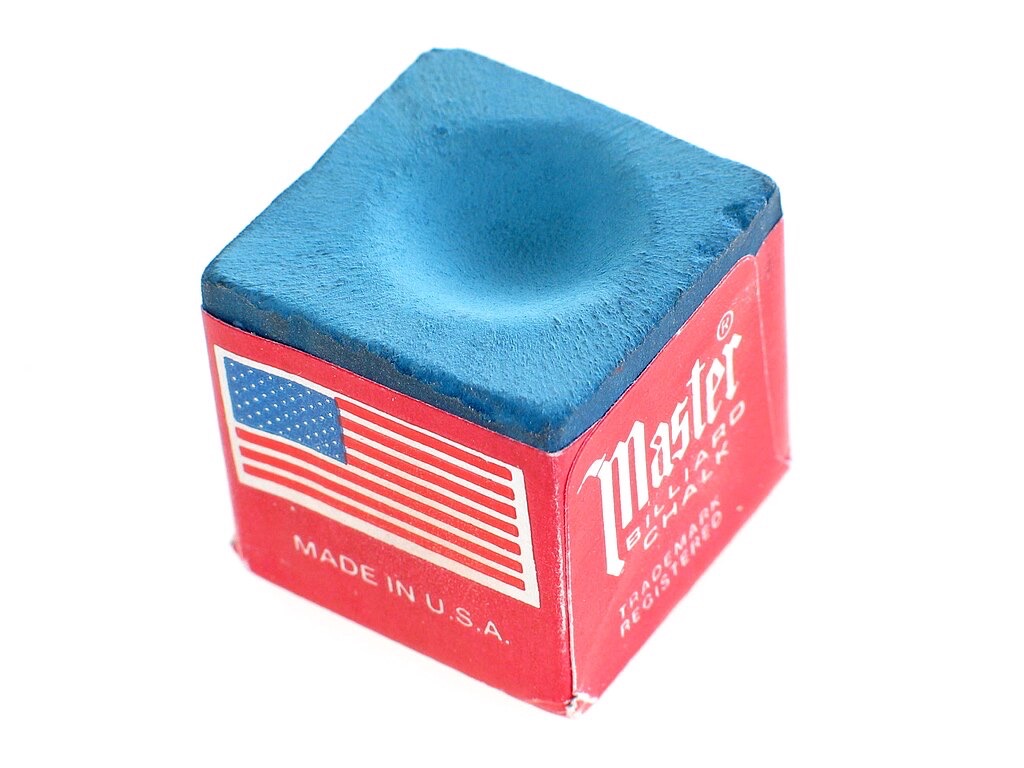
Unlike regular blackboard chalk, which is too smooth and can actually damage both the cue tip and the table surface, pool chalk is designed specifically for the game.
Cue chalk also comes in different colors, with blue being the most popular. Many players choose a color that matches their tablecloth to keep the surface looking clean and avoid distracting marks.
At its core, chalk is used to prevent something called a miscue, which is when the cue tip slips off the ball instead of striking it cleanly.
Read now: 12 Best Pool Chalk That Are Worth Buying In 2025
What Does Chalk Do In Pool?
So, what does chalk do in pool, and why do pool cues need chalk?
The short answer is: chalk is what makes your cue tip grip the cue ball instead of slipping off it. When you chalk the tip, you’re giving it just enough texture so that when it strikes the ball, the contact is clean and controlled.
Without chalk, the leather tip of your cue and the smooth surface of the cue ball are like two slippery objects colliding. Try hitting a few shots without chalk, and you’ll notice the difference immediately, you’ll miscue often, the cue will slide off the ball, and the shot will usually fly in the wrong direction.
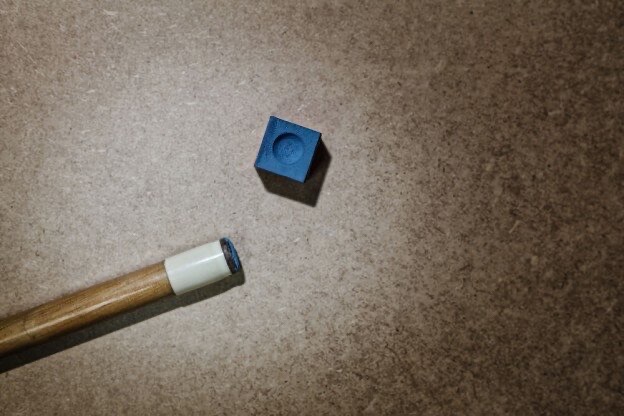
But chalk does more than just stop miscues.
By adding grip, it also allows you to put spin. draw, follow, or english, on the cue ball. This ability to control the cue ball’s movement after contact is what separates basic shots from advanced play.
Read now: How to Play Pool by Yourself? 10 Solo Pool Games for Skill Improvement
How Often Should You Chalk Your Cue?
Some players prefer to chalk before every single shot, while others are comfortable re-chalking every few turns. There’s no single rule for how often you should chalk your cue, it depends on your playing style and the type of shots you’re taking.
The reason ties back to what does chalk do in pool.
Chalk creates the friction needed between the cue tip and the cue ball, especially when hitting off-center. If you’re aiming at a very small contact point on the ball, you’ll want maximum grip to avoid slipping.
How long chalk lasts on your cue tip also depends on the hardness of the tip itself.
A softer tip holds chalk more easily, while a harder tip may need more frequent chalking. If you find that chalk no longer sticks well, it could be time to scuff or reshape the tip so it can grip chalk properly again.
Read now: How to Clean Pool Table Felt? Tips, Materials, and More
How To Chalk Your Cue Tip Properly?
If you want to avoid miscues and get the most out of your game, knowing how to chalk the cue tip properly is just as important as knowing what does chalk do in pool.
The goal is to create a smooth, even layer of chalk that gives your tip the right amount of grip without wasting chalk or damaging the tip.
Here’s a step-by-step guide:
- Position the Cue: Hold your cue at a comfortable angle where you can clearly see the tip. This makes it easier to apply chalk evenly.
- Apply the Chalk: Lightly brush the chalk across the cue tip instead of grinding it down. A gentle touch prevents waste and keeps the chalk cube in good shape.
- Rotate the Cue: Slowly turn the shaft while brushing the chalk so that the entire tip, including the edges, is coated.
- Check for Full Coverage: Make sure the whole surface of the tip looks evenly colored. Any bare spots could increase the risk of a miscue.
- Avoid Over-Chalking: Don’t drill into the chalk cube or press too hard. This can damage the tip, spread chalk dust onto the ferrule, and wear down the chalk unevenly.
- Maintain the Tip: Skip the habit of banging the cue or blowing on the tip to remove excess chalk. Both can damage the cue or scatter chalk dust on the table cloth.
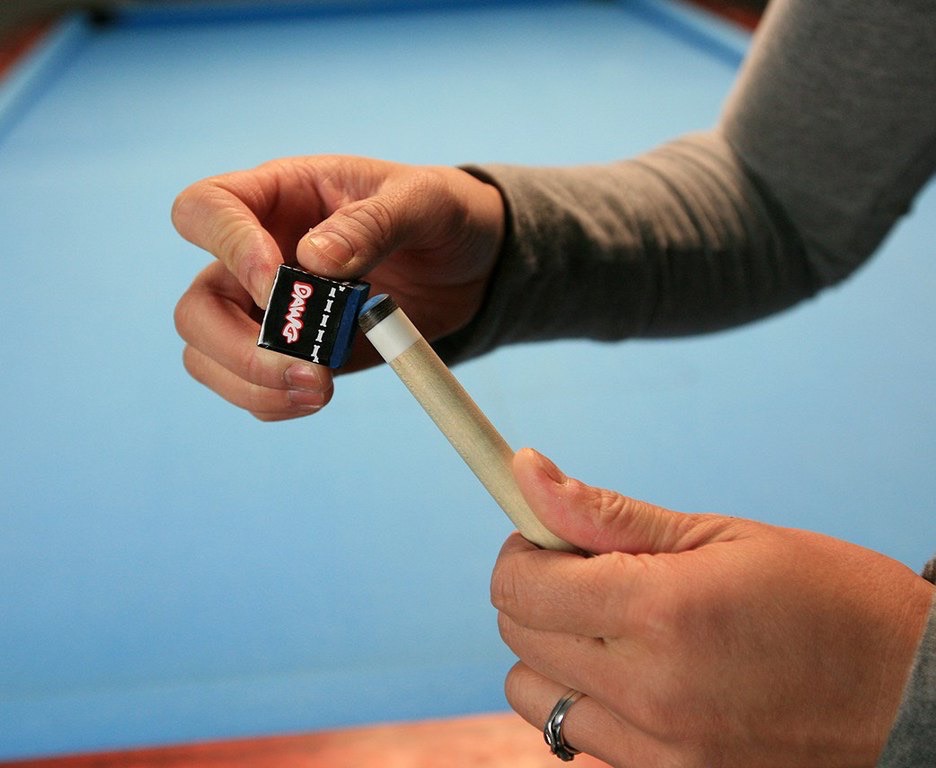
When done right, chalking should be quick and consistent, giving you the friction you need for confident shots every time.
Can You Play Pool Without Chalk?
Technically, yes, you can play pool without chalk, but only under very specific conditions.
If you strike the cue ball perfectly in the center every single time, there’s no need for extra friction because the surfaces meet evenly. In this case, you could play a full game without chalk and still make clean shots.
However, the moment you want to add spin, whether that’s draw, follow, or side spin, chalk becomes essential. Without it, the cue tip will simply slide off the ball, leading to miscues.
That means playing without chalk limits your options and forces you to stick with only center-ball hits. Some players even treat this as a practice exercise to improve accuracy and discipline, but in real competition, chalk is a must.
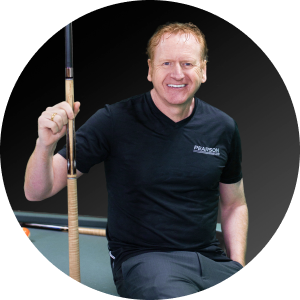
Dave Pearson
Dave Pearson, the world's leading pool entertainer, is renowned globally as the ultimate exhibition player.
Boasting 20 world records endorsed by the prestigious Guinness Book of World Records, Dave established a legendary history in the sport industry.
